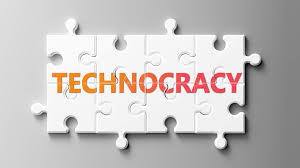
Breaking News
 Mach-23 potato gun to shoot satellites into space
Mach-23 potato gun to shoot satellites into space
 Slouching Toward Technocracy: Is The World Giving In?
Slouching Toward Technocracy: Is The World Giving In?
Trump administration accelerates dismantling of Education Department, shifts key programs...
 Texas secures $41.5 million settlement from Pfizer and Tris Pharma for knowingly poisoning kids...
Texas secures $41.5 million settlement from Pfizer and Tris Pharma for knowingly poisoning kids...
Top Tech News
 New Gel Regrows Dental Enamel–Which Humans Cannot Do–and Could Revolutionize Tooth Care
New Gel Regrows Dental Enamel–Which Humans Cannot Do–and Could Revolutionize Tooth Care
 Researchers want to drop lab grown brains into video games
Researchers want to drop lab grown brains into video games
 Scientists achieve breakthrough in Quantum satellite uplink
Scientists achieve breakthrough in Quantum satellite uplink
 Blue Origin New Glenn 2 Next Launch and How Many Launches in 2026 and 2027
Blue Origin New Glenn 2 Next Launch and How Many Launches in 2026 and 2027
 China's thorium reactor aims to fuse power and parity
China's thorium reactor aims to fuse power and parity
 Ancient way to create penicillin, a medicine from ancient era
Ancient way to create penicillin, a medicine from ancient era
 Goodbye, Cavities? Scientists Just Found a Way to Regrow Tooth Enamel
Goodbye, Cavities? Scientists Just Found a Way to Regrow Tooth Enamel
 Scientists Say They've Figured Out How to Transcribe Your Thoughts From an MRI Scan
Scientists Say They've Figured Out How to Transcribe Your Thoughts From an MRI Scan
 Calling Dr. Grok. Can AI Do Better than Your Primary Physician?
Calling Dr. Grok. Can AI Do Better than Your Primary Physician?
Slouching Toward Technocracy: Is The World Giving In?

Billionaire technologist and former Google CEO Eric Schmidt has publicly cautioned against this temptation while acknowledging why it is on the rise. When democracies fail to deliver, he notes, people naturally look for something—anything—that promises competence.
Surveys from 2025 even show that many citizens now trust artificial intelligence (AI) systems to make decisions on their behalf more than their elected representatives. It's a striking shift, but it reveals something more troubling than the technology itself.
The real crisis facing America and the West is not technological; it is moral. Democracies do not weaken because their tools become outdated; they weaken when the people who sustain them lose confidence, clarity, and inner direction.
Even if we built the most advanced AI-driven civic platforms—and even if we used algorithms to scale up deliberation or streamline participation—we would still fail unless we first addressed the deeper problem: a free government cannot survive a morally disoriented public. No algorithm, no matter how sophisticated, can supply virtue where none exists.
Yet the idea of "algocracy" (government by algorithm) continues to seduce a society increasingly overwhelmed by disorder. Algorithms promise what human institutions struggle to offer: speed, consistency, neutrality, freedom from corruption, and relief from the churn of political conflict.
In an era of distrust and institutional decay, those promises feel like rescue. But they are built on a misunderstanding of both human nature and machine logic. An algorithm can optimize efficiency, but efficiency is not wisdom. Optimization is not judgment. And judgment—moral, historical, human judgment—is the core function of democratic life.
When citizens lose their sense of agency or become exhausted by polarization, they begin to look for something outside themselves that can restore order. In previous eras, that "something" was a strongman. Today, it is a statistical system. The impulse is the same: to outsource responsibility to a seemingly neutral power.

 Unbanked In A Connected World
Unbanked In A Connected World

